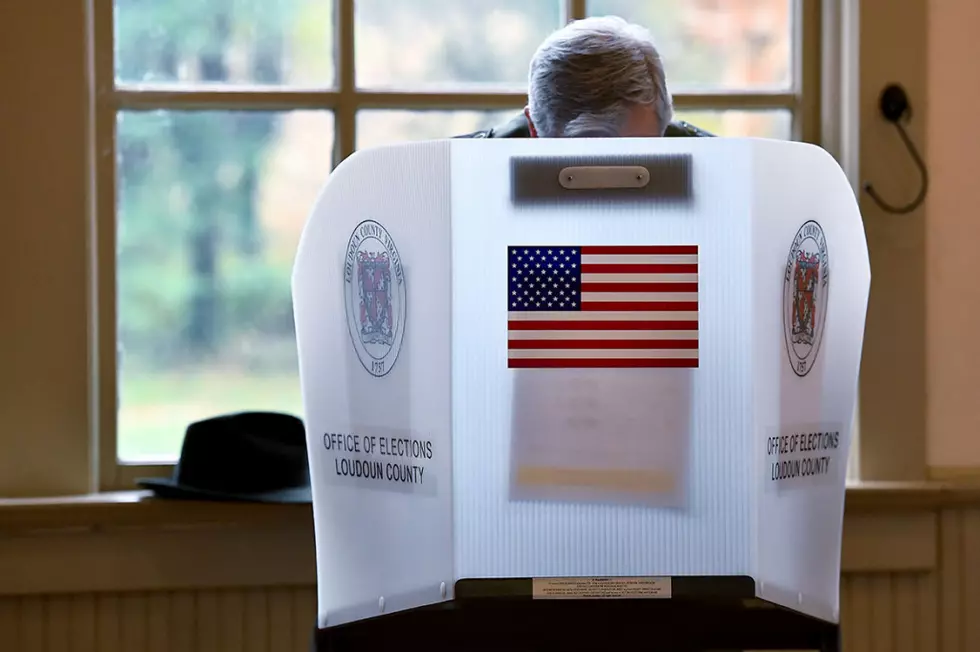
Hispanic voters in Colorado prioritize economic issues, survey shows
Lyndsey Toomer/Colorado Newsline
Based on a new survey, Colorado’s Hispanic voters prioritize improving the economy as well as crime and gun violence but place a new emphasis on abortion rights among other issues when they head to the polls.
A national survey conducted by Unidos, Mi Familia Vota and BSP Research interviewed about 300 registered Hispanic voters in Colorado, as well as a small group of eligible citizens who aren’t yet registered. Surveys were conducted in English or Spanish online or over the phone between July 20 and Aug. 1, and the organizations presented Colorado’s results Tuesday.
“Part of our commitment here is to make sure that there is accurate information about this electorate, and in Colorado, Latinos are the second largest voting community,” Clarissa Martínez-de-Castro, Unidos’ vice president of the Latino Vote Initiative, said. “I think the takeaway here is that Latino voters are sending a wake-up call to both parties, and chronic under engagement by parties and candidates continues with a large majority …”
Inflation and the rising cost of living was the top priority Hispanic voters in Colorado want elected officials to address, followed by crime and gun violence, jobs and the economy, lack of affordable housing and climate change.
Digging into the top three priorities further, respondents who chose the rising cost of living expressed specific concerns around costs for food, gasoline and other basic living expenses.
“Overwhelmingly, people are thinking about survival,” Gary Segura, president and cofounder of BSP Research, said. “They’re thinking about core needs when they’re talking about the cost of living.”
When it comes to crime and gun violence, 70% of those surveyed believe guns are too easy to access. Another 51% of respondents said elected officials need to find a way to stop school shootings.
Segura added that for jobs and the economy, respondents “overwhelmingly” reported not making enough money to make ends meet, and their jobs don’t pay them enough. He said two-thirds of Colorado’s Latino voters responded that they don’t feel they make enough with their primary, first job to make a living. Martínez-de-Castro said economy and job issues have traditionally been a top priority for Latino voters over the decades.
While abortion wasn’t in the top five priorities in Colorado, Segura said it was still much higher than it had ever been in these surveys before and that this was the most surprising aspect of the survey results to him. The high prioritization nationally of abortion rights is something he hasn’t seen in previous surveys, and its recent prominence is likely due to this Supreme Court’s reversal of Roe v. Wade earlier this year.
“Abortion has become more salient, way more salient than we ever saw in past polling,” Segura said. “74% of Latino voters in Colorado believe that abortion should remain legal, regardless of their personal feelings about the matter.”
The survey also found that Hispanic voters want to see immigration reform in the U.S., particularly with a path to citizenship for undocumented people already in the country. Segura added that 63% of Colorado’s Latino voters think the country is heading down the wrong track and 61% are certain they will vote come November.
When it comes to partisanship, the survey found that 40% of Colorado’s Latino voters prefer the Democratic Party while 14% prefer the Republican Party. On top of this, 20% say both parties are good while another 20% say neither party is.
The survey also asked respondents to answer questions about what they think of themselves, including the particular terms they think apply to them. Respondents had the option to choose as many words listed as they thought applied to them, and while 67% said they identify as Hispanic, only 43% identified as Latino or Latina. The numbers drop even more with other new identifiers: 14% identified as a person of color, 9% as Latinx, and 2% BIPOC.
“This is an important lesson for both political parties when reaching out to Latinos: don’t use language that makes it such that the targeted audience has no idea that you’re talking about them,” Segura said.
Other topics the survey dove deeper into included climate change, education and school safety and immigration.
Looking at core political values, Segura said he likes to look at what people believe about the political system because it helps to understand how respondents formulate their opinions. He said 93% of respondents prioritize politicians who work with different racial and ethnic groups and 88% want politicians to be willing to work with both parties.
One of the last key metrics Segura pointed out is that 55% of respondents reported receiving no contact from any party or organization encouraging them to vote.
“We think that at a time when the country is experiencing unprecedented challenges to our democracy, Latinos can be a stabilizing force in our politics and a powerful ally in safeguarding our democracy and realizing the nation’s ideals we all believe in,” Martinez de Castro said.
